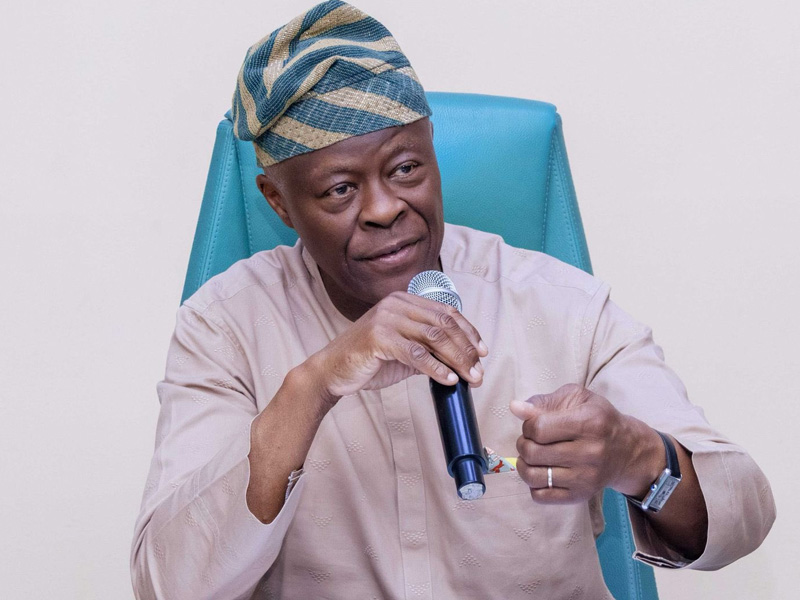
The Minister of Finance and Coordinating Minister of the Economy, Mr. Wale Edun on Wednesday disclosed that the federal government is on the verge of concluding the N1.5 trillion road concession project under the Highway Development and Management Initiative (HDMI).
The main objective of the HDMI, which seeks to facilitate the development of parts of Nigeria’s 35,000 kilometres of federal highway network, is to involve the private sector in the reconstruction and management of nine major highways across Nigeria, spanning approximately 900 kilometers.
In a bid to clear administrative hurdles hindering the ₦1.5 trillion road infrastructure investment Edun led a team of top federal government officials comprising his counterpart in Budget and Economic Planning, Mr. Abubakar Atiku Bagudu, and the Director General Infrastructure Concession and Regulatory Commission (ICRC), Dr. Jobson Oseodion Ewalefoh to meet with some of the private sector investors (concessionaires).
The Minister of Works, Dave Umahi, joined the meeting virtually.
Briefing journalists on the outcome of the meeting, Edun disclosed that the federal government was on the verge of finalising the highway concessioning initiative.
According to him, the partners have nearly completed all agreement arrangements for the highways, which they will finance, rebuild, and maintain under a 25-year concession agreement.
The concessionaires are expected to recoup their investments through tolling fees.
He said, “We met the concessionaires who have virtually concluded all the agreement arrangements for nine roads, nine major highways, which they are contracting to refinance the rebuilding of and to recover their funds from tolling fees under 25-year or so agreements.
“ And we met them to iron out the remaining administrative obstacles to them kicking off construction of these roads.”
The minister explained that this significant private sector investment would bridge budgetary gaps and allow investors to undertake revenue-generating projects, leveraging their expertise and resources for long-term implementation and maintenance.
Edun stated that David Umahi, participated in the discussions virtually, despite being in Lagos to showcase progress on the Lagos-Calabar Highway, adding that the latter was expected back in Abuja next Tuesday to finalise pending issues.
“Thereafter, it will be a question of signing the addendums and moving to the site. As you know, already the 125-kilometer Benin–Asaba Highway concession agreement has been signed. The addendum has been signed.
“All arrangements have been finalised. In fact, the Ministry of Works has handed over the road to the concessionaire and they have already started the preliminary arrangements for reconstruction of that road in place of a 10 lane highway. It’s an investment, it’s a project and an initiative that will reduce the travel time between Benin and Asaba right up to the Niger Bridge,” Edun stated.
The Benin–Asaba Highway project, which has already commenced, is expected to reduce travel time between Benin and Asaba from four hours to one hour, significantly enhancing productivity and efficiency in the region.
Launched in 2021, the HDMI is a strategic programme by the Federal Government aimed at attracting private sector investment to improve Nigeria’s federal road network.
The initiative seeks to address the challenges of inadequate funding and maintenance by leveraging Public-Private Partnerships (PPP) to develop and manage road infrastructure.
Under the HDMI, 12 highways were initially selected for concession, covering a total of 1,963 kilometers. These roads include Benin–Asaba, Abuja–Lokoja, Kano–Katsina, Onitsha–Owerri–Aba, Shagamu–Benin, Abuja–Keffi–Akwanga, Kano–Shuari, Potiskum–Damaturu, Lokoja–Benin, Enugu–Port Harcourt, Ilorin–Jebba, Lagos–Ota–Abeokuta, and Lagos–Badagry–Seme.
The initiative is projected to generate over 50,000 direct and 200,000 indirect jobs, contributing significantly to Nigeria’s economic growth and development.



